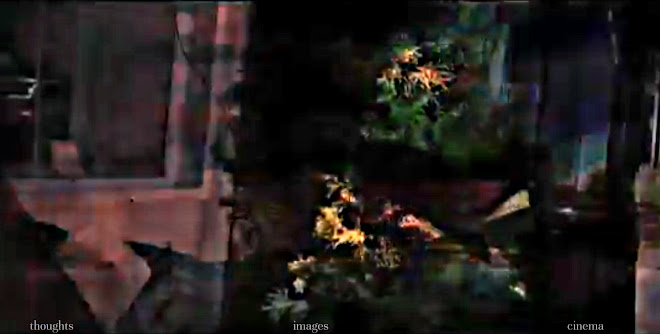28 December 2012
17 December 2012
22 November 2012
23 October 2012
06 September 2012
08 August 2012
JLG:3-D
If you can't beat 'em, problematize 'em: Jean-Luc Godard's next movie, Goodbye to Language 3D, is shooting this summer. Has the great one embraced the technology of the multiplex? Sort of-à sa façon: Godard is jerry-rigging his own 3-D camera out of two mobile phones fitted with lenses. That's par for the course given the filmmaker's curiosity about image innovation, from Raoul Coutard's night photography in Breathless to the slow-motion studies of Sauve qui peut. As for the plot, you know better than that. Production summary excerpt: "A married woman and a single man meet. They love, they argue, fists fly... From the human race we pass to metaphor." Film Socialisme DP Fabrice Aragno returns to shoot.
From Film Comment July/August 2012 Volume 48/Number 4
07 August 2012
Sight & Sound Top Ten
City Lights (Charlie Chaplin, 1931)
Melancholia (Lav Diaz, 2008)
N:O:T:H:I:N:G (Paul Sharits, 1968)
L'Atalante (Jean Vigo, 1934)
Oxhide II (Liu Jiayin, 2009)
Le vent d'est (Groupe Dziga Vertov, 1970)
L'enfant secret (Philippe Garrel, 1979)
L'humanité (Bruno Dumont, 1999)
Wavelength (Michael Snow, 1967)
Salò o le 120 giornate di Sodoma (Pier Paolo Pasolini, 1975)
06 August 2012
Revolution
Step Up Revolution was my second 3D experience and unlike Hugo, it was an incredibly enjoyable one. By no means won over by the technology yet at least in this instance it didn't completely ruin the experience for me. Why I think it works in Step Up is because it by no means tries to consistently create a 3D environment and when it does it doesn't overdo it. There's a subtleness to the use of the 3D that actually made it work. Another reason why I probably enjoyed this experience more was because the actual film was also better. Step Up Revolution is one of the best experiences I've had at the cinema this year. It begins with the biggest, most outrageous number and works its way into an incredible subtle and meaningful last dance. Even its reactionary ending is so abrupt and 'perfect' that its clearly a Sirkian style ending that leaves everything polished off so nicely in such a short time that its satiric. Trevor Link at Spectrum Culture has a wonderful review here:
For those mourning the death of the movie musical, the dance film might be our only hope for the resurrection of its ecstatic pleasures. Critics dismiss these films because of their unfamiliarity with, indifference to or disdain for dance in general, but also because, in focusing on what these films fail to do, they ensure their blindness to the genre’s actual successes ... Dance dramatizes the plight of the individual against organized oppression, a sight unmistakably reminiscent of the Occupy protests. This is dance at its most cinematic, using the tools of the medium to create unique meanings incapable of being expressed otherwise ...
05 August 2012
04 August 2012
Learning from Griffith
. . .
lust
fulfillment
the room (evidence)
revenge
victory
death
. . .
the endless possibilities of the cinema
a passionate kiss can elapse enough time to build a cement wall to enclose the lovers
warping time perception through cinema
time traveling
magic (back to méliès)
the power of revenge
which will become one of cinema's greatest areas of exploration
a theme to be dissected through moving images
the sealed room (1909); 11 minutes
Subscribe to:
Posts (Atom)




















































